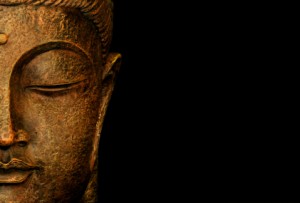Understanding Buddhism, Understanding Life!
The new comers to Buddhism are rather shocked to read the first of the four ennobling realities of Buddhism–the truth of suffering.
Life is suffering?
Yes, says Buddhism, the way we normally live.
There is more here than what meets the eye, as is usually the case with things profound.
Generally, there are three distinguishing marks of existence that are presented in the earliest teachings of the Buddha:
- aniccā (impermanence),
- dukkha (suffering), and
- anatā (lit.: not self).
The first feature means that everything changes. The last one means that there is no “separate” self. Existence is one inseparably happy interconnected web. You cannot pluck a flower without disturbing a star. And by the way, there are no “weeds.” A weed is plant whose medicinal value we have not discovered yet.
Because, we do not really accept the truth of change as well the fact that, we do not exist as separate entities, we life a life of anguish, of suffering.
That is what is meant by “life is suffering,” the first Noble Truth.
Now lets look at how we live: We wish the things, relationships, events that are favorable to us to “not” change. And our whole existence is based on strengthening, reinforcing our attachment to a separate ego we believe to be our self. We even try to “own” space! We say, i need my space! We even glorify our attachments! The media has its share in it too. Well, diamonds are not forever and the real estate is not really real either.
Both first and last marks (impermanence and no separate self) teach us to live a life of non-grasping, non-clinging and non-attachment. To live without the tag of ownership. What is there to own anyways? Did we bring anything with us? Will we be able to take anything with us? Like it or not, death is the ultimate leveler, the most democratic thing in the universe.
The idea is to neutralize our strong likes and dislikes. Non-attachment is a flower that grows on the tree of understanding.
Saturated with this understanding, we not only eliminate suffering from our life, we also become more loving, more generous, more compassionate, more understanding, more considerate, and more forgiving.
It has been rightly said that in the end only three things matter: how much we loved, how gently we lived, and how gracefully we let go of things that are not meant for us.
This is one good summary of Buddhism or, shall we say, the Art of Living.


Recent Comments